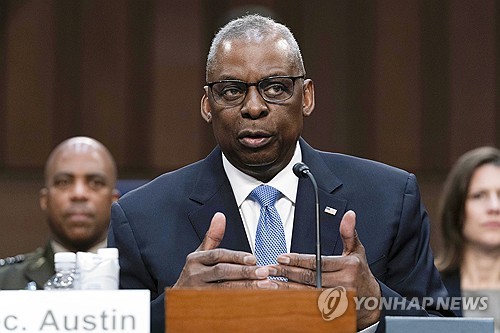N. Korea poses 'real' threats to U.S. and allies: Gen. Milley
By Byun Duk-kun
WASHINGTON, April 5 (Yonhap) -- North Korea's nuclear and ballistic missile programs pose a real danger to the U.S. homeland, as well as U.S. allies and partners in the Indo-Pacific, Gen. Mark Milley, chairman of the U.S. Joint Chiefs of Staff, said Tuesday.
Milley also said the North shows no signs of giving up its efforts to further advance its military capabilities.
"The Democratic People's Republic of Korea's (DPRK) continued weapons testing and development poses real threats to our allies and partners in the Indo-Pacific as well as the homeland," the Army general said in a written testimony submitted to the House Committee on Armed Services before a budget hearing on the day.
"The DPRK continues to enhance its ballistic missile capability and possesses the technical capacity to present a real danger to the US homeland as well as our allies and partners across the Indo-Pacific," he added, referring to North Korea by its official name.
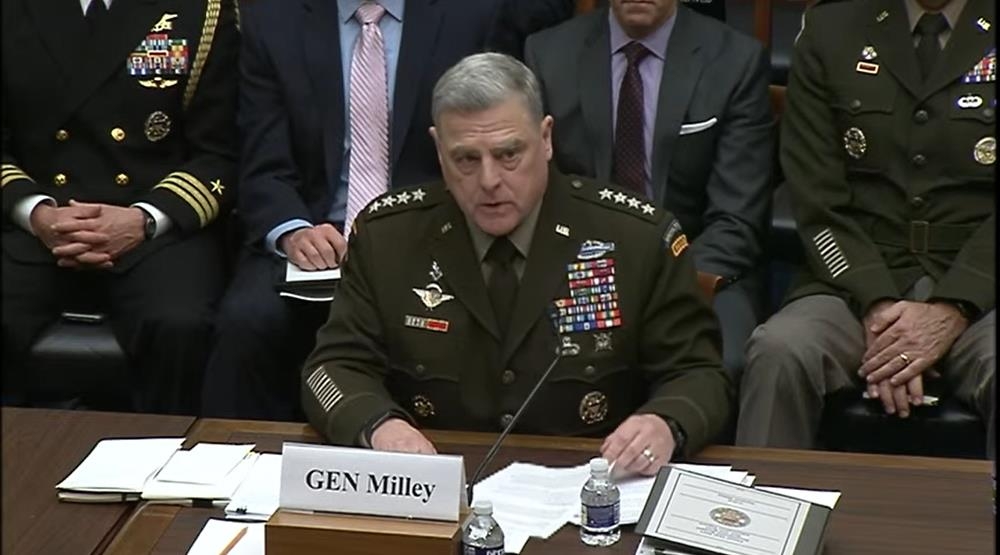
Gen. Mark Milley, chairman of the U.S. Joint Chiefs of Staff, speaks during a House armed services committee hearing on defense budget in Washington on April 5, 2022, in this image captured from the website of the House committee. (Yonhap)
North Korea staged 12 rounds of missile tests this year, including seven in January alone that marked the largest number of missile launches it has conducted in a single month.
Defense Secretary Lloyd Austin agreed the North presents "persistent threats" to the U.S.
"We face persistent threats from North Korea, with its nuclear arsenal and developing missile capability," he said in his own written testimony to the House armed services committee.
Officials in Seoul and Washington have said the North appears to be repairing underground tunnels at its Punggye-ri nuclear test site that it had purportedly dismantled in 2018 as a claimed proof of its willingness to denuclearize.
Pyongyang in January said it may restart "all temporarily-suspended activities," apparently referring to its self-imposed moratorium on nuclear and long-range missile testing.
The country fired an intercontinental ballistic missile (ICBM) on March 24, marking its first ICBM test since November 2017.
"(North Koreans) show no signs of relenting in their myopic focus on military capability at the expense of their citizens and peace of the Korean Peninsula as well as the entire region," Milley said.
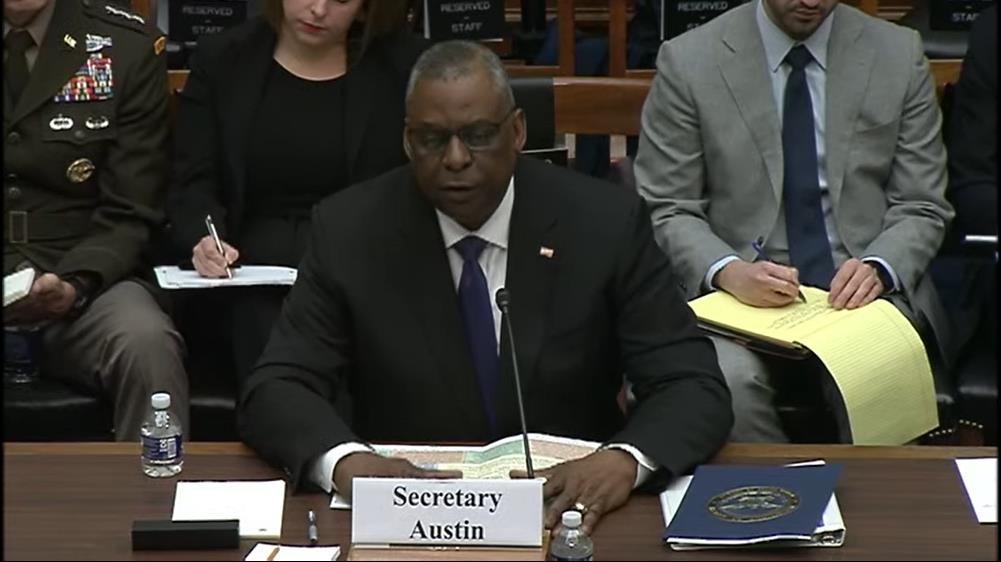
U.S. Secretary of Defense Lloyd Austin answers questions in a House armed services committee hearing in Washington on April 5, 2022, in this captured image. (Yonhap)
The U.S. Department of Defense earlier submitted a request for a 4.1 percent increase in defense spending in fiscal year 2023, partly citing threats posed by North Korea.
"This budget gives us the resources we need to deliver on that promise. Our budget reflects our National Defense Strategy and the focus of that strategy on the pacing challenge of China," the defense secretary said earlier, adding, "It preserves our readiness and deterrent posture against the threats we face today: the acute threat of an aggressive Russia and the constantly emerging threats posed by North Korea, Iran, and violent extremist organizations."
The Joe Biden administration is seeking $813.3 billion in overall defense spending in fiscal year 2023, including a $733 billion budget for the defense department.
bdk@yna.co.kr
(END)
-
 Defense chief says N. Korea's hypersonic missile 'unsuccessful' in last-stage glide flight
Defense chief says N. Korea's hypersonic missile 'unsuccessful' in last-stage glide flight -
 Ex-PM suffers crushing defeat
Ex-PM suffers crushing defeat -
 Man in his 40s nabbed for spray-painting slurs toward ex-President Moon
Man in his 40s nabbed for spray-painting slurs toward ex-President Moon -
 Police catch 1,681 over alleged election law violations
Police catch 1,681 over alleged election law violations -
 PPP lawmaker says entire Cabinet should resign over general elections defeat
PPP lawmaker says entire Cabinet should resign over general elections defeat
-
 Defense chief says N. Korea's hypersonic missile 'unsuccessful' in last-stage glide flight
Defense chief says N. Korea's hypersonic missile 'unsuccessful' in last-stage glide flight -
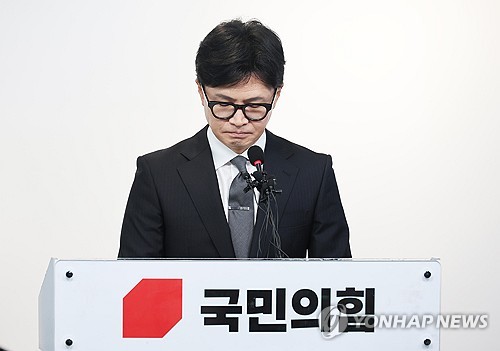 Ruling party leader resigns following election defeat
Ruling party leader resigns following election defeat -
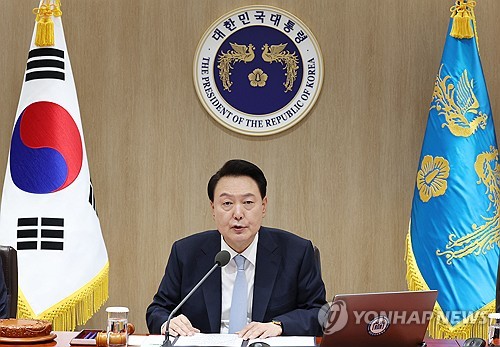 (LEAD) Yoon vows to improve communication with people after election defeat
(LEAD) Yoon vows to improve communication with people after election defeat -
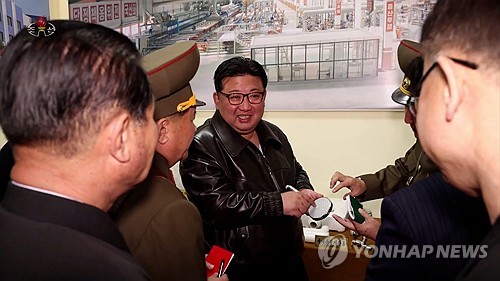 N.K. leader vows to deal 'death-blow' to enemy in event of confrontation: KCNA
N.K. leader vows to deal 'death-blow' to enemy in event of confrontation: KCNA -
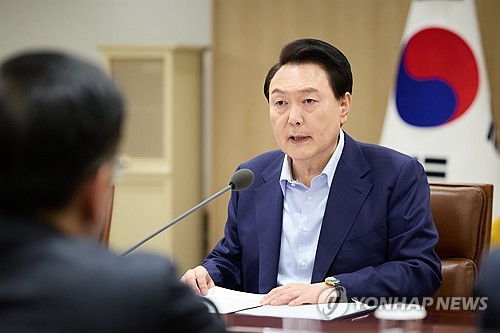 Yoon presides over emergency meeting on Mideast crisis
Yoon presides over emergency meeting on Mideast crisis
-
 N. Korea has capability to genetically engineer biological military products: U.S. report
N. Korea has capability to genetically engineer biological military products: U.S. report -
 (LEAD) S. Korea 'strongly' protests Tokyo's renewed claims to Dokdo, calls in Japanese diplomat
(LEAD) S. Korea 'strongly' protests Tokyo's renewed claims to Dokdo, calls in Japanese diplomat -
 (LEAD) Yoon vows to improve communication with people after election defeat
(LEAD) Yoon vows to improve communication with people after election defeat -
 (2nd LD) Yoon apologizes for failing to heed people's will following election defeat
(2nd LD) Yoon apologizes for failing to heed people's will following election defeat -
 (3rd LD) U.S. unveils US$6.4 bln in CHIPS Act grants to Samsung Electronics
(3rd LD) U.S. unveils US$6.4 bln in CHIPS Act grants to Samsung Electronics


















